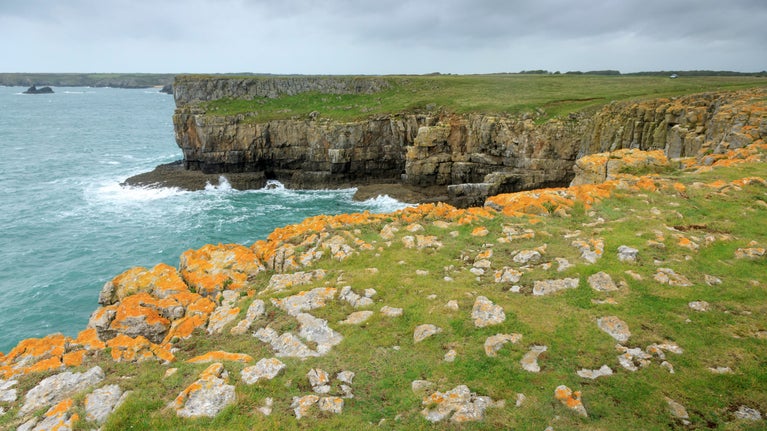
Coast
From the sounds of our shores to our tips for rock pooling, get closer to the coast.

Working together with the British Library and the National Trust for Scotland we created the UK’s first ever coastal sound map. You recorded and shared your favourite sounds of our shores to help build a crowd-sourced soundscape of the nation’s coastline. Find out about the project and top tips for making your own recording of the sounds of our shores.
From breaking waves to bustling piers, children’s laughter to chattering seabird colonies, what we hear at the coast connects us to it.
Over 650 coastal sounds from around the UK were uploaded during the three month project. These coastal sounds were added to the British Library Sound Archive for future generations to enjoy.
As part of the project, Cheryl Tipp from the British Library shared her tips for recording the sounds of the shores.
1. Try to get as close as possible to the subject that you want to record. If you want to record wildlife, make sure that you don't disturb the animals.
2. When you're making the recording, monitor the sound through headphones. This will really help you focus on the subject.
3. Wind noise can be a problem, especially at open coastal sites. To minimise wind noise you can use a wind shield that goes over your microphone . If you're using a phone or tablet, you can use a sock or a glove over the microphone on your device.
4. If you're using a phone or a tablet, make sure you're pointing the microphone at the subject you want to record, and be careful not to touch the microphone as they're really sensitive.
If you follow these tips, you're sure to make a great recording at the coast.

We selected 10 of the most evocative sounds recorded as part of the project and launched a poll to find the UK’s favourite coastal sound.
Following the vote, it was the sound of gentle waves breaking on the beach at Trwyn Llanbedrog in Wales which came out on top.
For me the sound has a hypnotic quality, the rhythmic nature of the gentle breaking water is lovely and just by listening to it you’re transported to a peaceful evening on the beach with just the sea and the birds for company
As part of the project, musician and producer Joe Acheson of the Hidden Orchestra, used sounds recorded by ten local BBC radio stations of coastal sounds in their area to create a three-minute track called ShoreSounds.

From the sounds of our shores to our tips for rock pooling, get closer to the coast.
This coastal soundscape by Martyn Ware is cinema for the mind. Using sounds submitted as part of the 'sounds of our shore' project, Martyn Ware has created a rich sonic journey around the 10,800 miles of the UK coastline.

We’re tackling the threats of a changing coastline to safeguard the places you love. Find out how our teams are adapting their approach to our shifting shores.

From tips on saving water to combatting plastic pollution, learn more about our work to protect precious coasts and rivers for wildlife and people, and what you can do to help.

Do you know your ammonites from your devil’s toenails? Discover how to identify some of the fossils commonly found around the UK coast and where you might see them.
